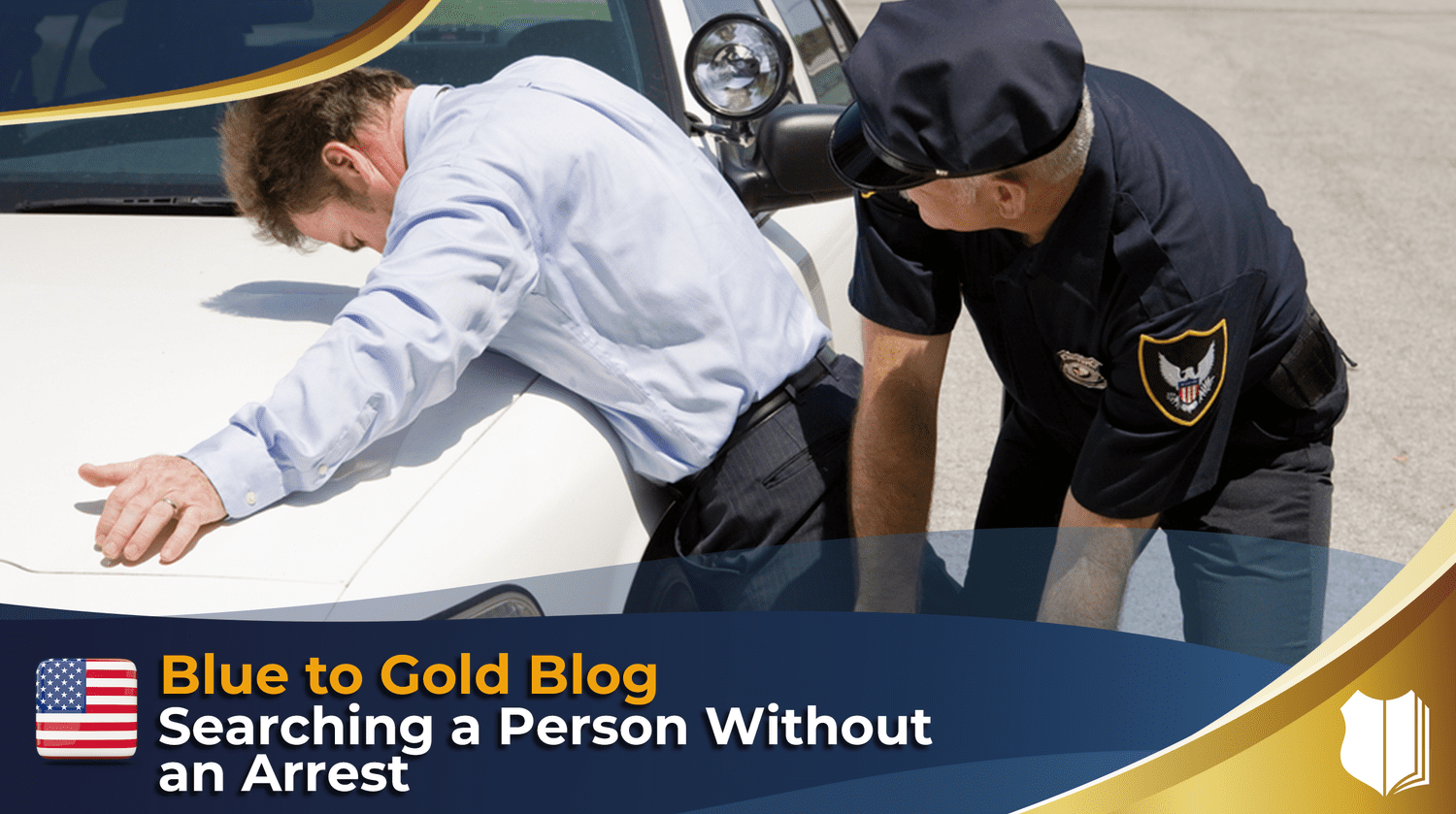“Can you search a person for evidence if you have probable cause?” In other words, do you have to make the arrest?
Let’s go through a couple scenarios with the officer. One is basically that the officer had a consensual encounter with a suspect that he knows from prior arrests. He’s your neighborhood felon, that type type of deal. You know who he is. The cop asked him, “Hey, Johnny, you got meth on you?”
And this guy admits, “Yeah, I got meth on me.” That can be a cite and release type of situation. You don’t have to arrest him. We can do a search incident to arrest. The cop is asking, “Can I retrieve that evidence without the arrest?
He’s been getting conflicting answers, but I have your answer. The answer is “Yes.” The answer is “yes” based on two rationales. Number one is exigency. You don’t have time to go chase down a warrant while this guy is standing on the street. Even if he’s in handcuffs, he can manipulate the evidence. If he has, let’s say, some kind of paraphernalia, he can break it, he can land on it, he can try to escape. The point is, there’s this exigency, there’s this urgency just to get the evidence off of his person to cure it, and then go from there. So there is usually exigency. And the vast majority of courts have held the same.
The other one is that the intrusion is less than what you could have done, which is to arrest the guy. I mean, think about it. If it’s an arrestable offense, it’s a crime committed in your presence. Even if it’s a misdemeanor, it’s a crime being committed in your presence. He is telling you that he has meth on his person. That is probable cause, right? I mean, why would he lie about that? So there is a fair probability that he’s telling the truth, and add to that his prior histories.
How is he going to complain? If he goes to court and says, “Your Honor, they shouldn’t have retrieved that evidence,” the response would be, “But isn’t it true, Defendant, that they could have also arrested you and done a full search incident to arrest including potentially a visual cavity search at jail if you’re going to be put into the general population? So, you’re saying that the cops can do that, but they can’t do a lesser intrusion, which is just to retrieve the evidence, cite you and have you go on your way? Is that what you’re saying Defendant?”
It’s not reasonable, right? It’s more reasonable just to do the lesser intrusion, and kick the guy loose.
Now, the cop says, “That’s the drug scenario, here’s another scenario. A person is detained by loss prevention. The loss prevention does not retrieve the evidence from the person, but they have him in custody . They’re just basically doing a citizen’s arrest. But they’re not searching. So the cops show up, and they watch the security cam, and what they see is this guy stuffing merchandise down his pants, in his backpack, wherever. And now, can we retrieve that evidence without arresting him?”
Well, we know that this is not a misdemeanor committed your presence. Just because you watch a film of a past event, it is not committed in your presence. If you’re watching it live and the guy is stuffing stuff in his pants, or wherever, that is a committed in your presence, even though it’s through the security cam.
So here, again, we have an exigency argument. We don’t have time to go and get a warrant while this guy’s sitting in there and so forth. But here’s just good old-fashioned exigency. Does that sound reasonable, to just go retrieve the evidence, give the evidence back to the store, and then cite and release him? The answer is “Yes.” I have not seen a case where the evidence has been suppressed under these circumstances. Maybe it exists out there, but the vast majority of cases that I’m seeing on these issues are upholding the searches on various doctrines, primarily exigency, and it’s a lesser intrusion anyway, than a full arrest.
That’s my feeling on it. I’m sure this is going to help many cops because this question comes up a lot. I hope this helps you. I want to train cops and this is a great way to do it. Stay safe, my friends!











